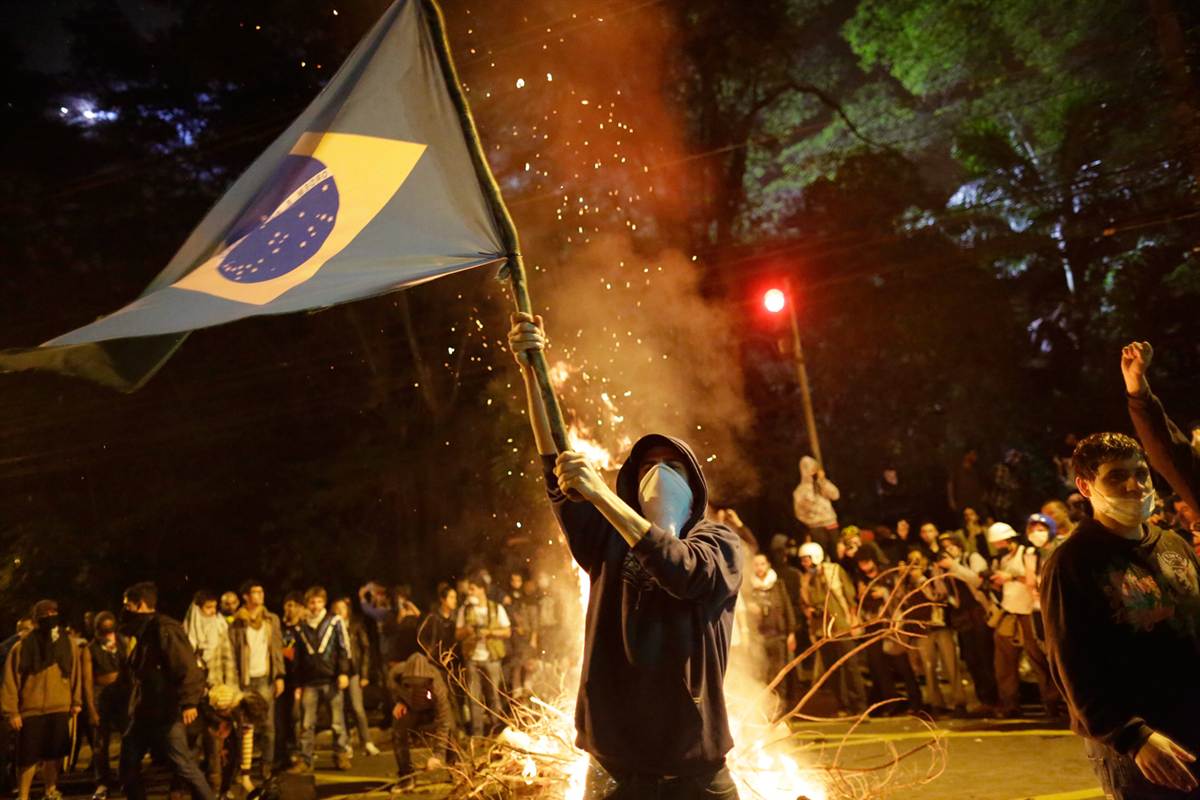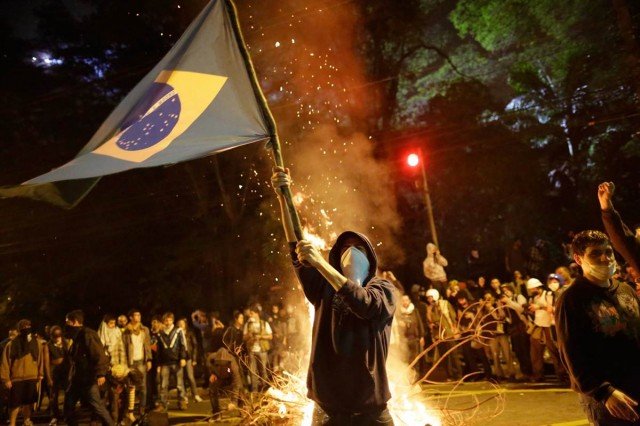
Brazilia’s President Dilma Rousseff has cancelled a planned trip to Japan over continuing mass anti-government protests across the country.
The move is an indication of the seriousness of the situation confronting her, correspondents say.
In the north-eastern city of Salvador, police fired tear gas and rubber bullets to disperse protesters ahead of an international football match there.
Big rallies are being staged in Rio de Janeiro, Brasilia and other cities.
Demonstrators in Sao Paulo earlier said they would take to the streets “to celebrate” the reversal of a public-transport fare increase announced on Wednesday.
The protests, which were originally triggered by the increase, have since grown into a much wider movement.
Demonstrators are angry at corruption and spending on next year’s World Cup.

On Thursday, President Dilma Rousseff’s office announced that her trip to Japan planned for next week had been called off. Another visit to the Brazilian state of Bahia has also been put on hold.
In a statement, the office acknowledged that the decision had been taken as a result of the continuing demonstrations.
President Dilma Rousseff earlier publicly stated that she was proud that so many people were fighting for a better country.
In Salvador on Thursday, clashes erupted when protesters tried to break through a police barrier near the stadium where a Confederations Cup match between Nigeria and Uruguay is due start later. It was not immediately clear if there were any injuries.
Meanwhile, thousands of people are marching in central Rio de Janeiro near the iconic Candelaria Church, but there have been no reports of violence.
The city authorities earlier erected barricades around the state legislature building, which was vandalized during protests on Monday.
The state governor’s office, Guanabara Palace, and the mayor’s office had been secured by police cordons.
A number of Rio shopkeepers had put up wooden hoardings to protect the front of their businesses and some banks have done the same.
In the capital Brasilia, big crowds gathered outside the National Congress building.
Previous Confederations Cup matches have drawn protests, with demonstrators expressing their anger at steep ticket prices and the money spent on the Confederations Cup, the 2014 World Cup and the 2016 Rio Olympics.
[youtube faMU1WVhMi8]